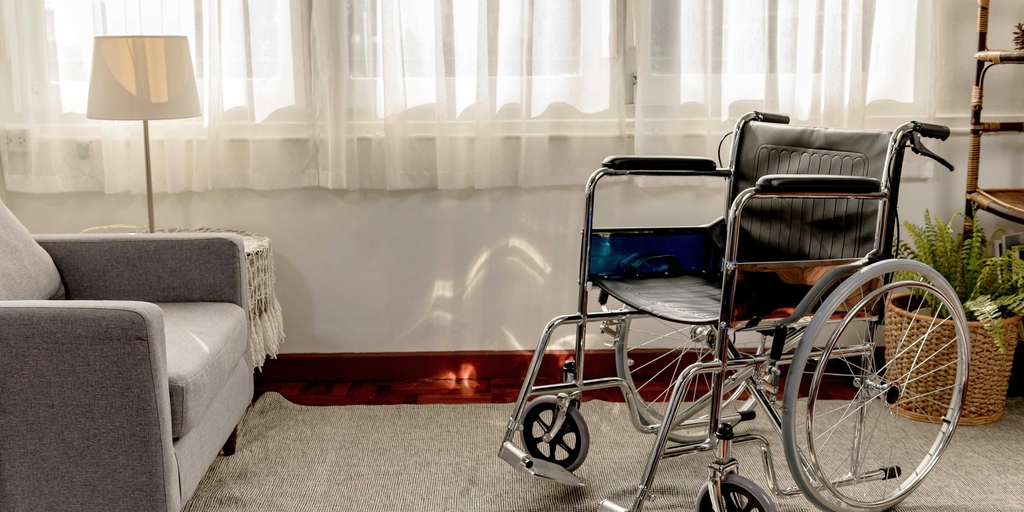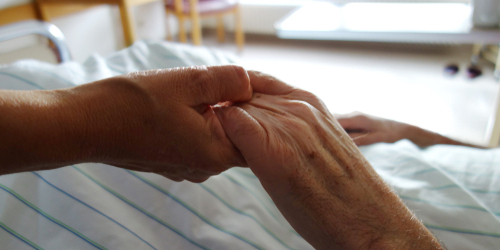Scots assisted suicide bill a threat to vulnerable and disabled lives
Assisted Suicide
Assisted suicide legislation lodged in the Scottish Parliament “poses huge risks to the most vulnerable in Scottish society”, campaigners have said.
And an expert in bioethics warns that a move to assisted suicide would undermine principle of “the equal worth of all lives”.
This morning, it was announced that member’s legislation by Lib Dem MSP Liam McArthur will be lodged today, designed to introduce assisted suicide for terminally ill adults.
Responding to the news, Michael Veitch, Parliamentary Officer at public policy charity CARE for Scotland, commented:
“It’s hugely dispiriting to see another attempt to change the law around assisted suicide in Scotland. Both Holyrood and the UK Parliament have rejected this kind of legislation in recent years and for good reason. It poses huge risks to the most vulnerable in Scottish society.
“This law will not just affect the small number of individuals who might choose to access assisted suicide. It will affect every person living with a terminal illness, fundamentally alter the doctor-patient relationship, devalue disabled people’s lives, and undermine wide efforts to prevent suicide.
“There can be no adequate safeguards. Providing a terminal prognosis is fraught with uncertainty. Vulnerable patients can be coerced. And the experience of other jurisdictions shows that an incremental extension of the law is inevitable.
“Sadly, this legislation comes after a renewed campaign driven by hyperbole, not by evidence and information. We hope that parliamentarians will be guided by the evidence in the forthcoming debate and opt to uphold current provisions.
“There are far better and more ethical ways to help patients at the end of life than allowing lethal drugs to be prescribed on the NHS.”
Bioethics expert: 'proposal undermines equality'
Dr Calum MacKellar, Director of Research of the Scottish Council on Human Bioethics, also warned against a change in the law:
“It is extremely concerning that a new initiative to legalise assisted suicide has been proposed.
“This move requires society to accept that some lives are unworthy of life. And it means the worth of some lives is no longer considered to be equal to that of other lives.
“When a society no longer believes in the equal worth of all lives, it is on a very dangerous road and can no longer be considered civilised.”
Hancock warned against assisted suicide move
Last week, UK Health Secretary Matt Hancock heard concerns from an expert in palliative medicine and a former Paralympic athlete about similar proposals lodged at Westminster.
Dr Katherine Sleeman, Professor of Palliative Care at King’s College London, told a meeting of the APPG on Dying Well attended by Mr Hancock that: “The risk of harm of changing the law outweighs the risk of harm if we leave the law as it is”.
Prof Sleeman said:
“Both sides of this debate, agree, that dying should be dignified. So how can we improve dignity associated with dying? Well, as an academic, my strategy is to look to the scientific literature which provides both some clarity and some concern. What is clear is that often it's the services people receive before death that are associated with dignity.
“Here's the concern. About 600,000 people die each year in the UK and it's estimated that three-quarters of them would benefit from palliative care. Now, it is difficult to be sure exactly how many of these people receive palliative care. Because, frankly, we need much better data.
“Hospice, UK have estimated that every year in the UK over a hundred thousand people die needing palliative care but not receiving it. And more of a concern is that this gap is getting bigger because needs are projected to increase by around 40 percent over the next 20 years. And that will almost certainly increase known inequalities in access to care, for example, by ethnicity by deprivation."
She added:
“Can we really consider legalization of assisted dying, this seismic shift for all of society, when so many people are dying without the care they require, without even the information that they need?
“I do not necessarily think assisted dying is morally wrong, but I am deeply concerned that our societal conversation is being driven by hyperbole and fear not by evidence and information and it's wrong and dangerous to frame this as a choice between suffering and suicide.”
Former Paralympic athlete decries change
Former Paralympian Baroness Tanni Grey-Thompson also attended the event. She argued that society must consider “the impact that a potential change in the law will have on disabled people”.
Arguing that a lack of appropriate safeguards exist in the assisted suicide bill before parliament at present, she said:
“Frailty and illness and especially illness and disability are often wrongly used interchangeably. Some would say the six months prognosis that is included in the bill would exclude disabled people. But there are many disabled people for whom it could be reasonably argued they have six months left to live.”
“Most people don’t realize the daily grind that disabled people face, and I recognize I have a degree of privilege in my life, but I've lost track of the number of people who have asked me, have I thought about ending my life because they assume that my life is so terrible and tragic…People say to me that they couldn't bear it if they were incontinent. Well, I am. And it is not even vaguely the hardest thing in my life. If you banned catheters that might change how I was able to live. But people's underlying view of disability is inherently negative.”
“I have spent most of my life arguing for choice and inclusion, but we have to recognize that a significant number of disabled people have very, very little choice in their lives and right now, disabled people are spending a lot of the time fighting to live and survive as opposed to asking to die…I would just ask people to think about the impact on disabled people. And the idea that we are somehow in the waiting room for assisted suicide to have us included.”
Responding to the statements made by assisted suicide opponents, Mr Hancock stated:
“I think everybody would agree that the current law around this area is complicated, but there are risks to changing it as well as there being problems with the way that the current law is drafted."
He added: “The government's position is that we don't we don't take a view on a change in the law…because we think that these questions are for Parliament.”
“I think as Health Secretary in a way, I see myself as the parliamentarian whose job it is to make sure that the debate is a, is a high-quality one when it comes.”
Notes for Editors
About the assisted suicide bill
This morning, it emerged that a Members Bill to legalise assisted dying is due to be lodged at the Scottish Parliament. The proposal - brought forward be Orkney MSP Liam McArthur – aims to introduce the right to an assisted death for terminally ill adults.
The bill is supported by a cross-party group of MSPs. It is understood a consultation on the contents of the bill is expected to take place in autumn.
For interview requests or more information please contact Jamie Gillies: jamie.gillies@care.org.uk // 07384467819
CARE is a well-established mainstream Christian charity providing resources and helping to bring Christian insight and experience to matters of public policy and practical caring initiatives. CARE is represented in the UK Parliaments and Assemblies.





Share story
Scots assisted suicide bill a threat to vulnerable and disabled lives